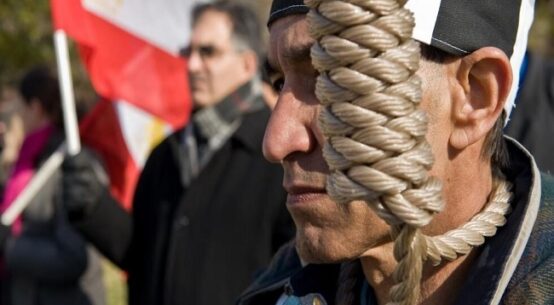Human rights defenders are under fire. At a time when the climate crisis is deepening and threats to democracy are on the rise, activists working to protect people and the environment are facing deadly threats. Front Line Defenders documented more than 400 murders of defenders in 2022—the highest number ever recorded.
New legislation introduced by U.S. Senator Ben Cardin, Chair of the Senate Foreign Relations Committee, might help reverse this alarming trend.
The Human Rights Defenders Protection Act of 2024 would strengthen the U.S. government’s ability to protect individuals abroad who are attacked for peacefully defending human rights.
“At a time when human rights defenders are under attack all over the world, it is encouraging to see such a strong bill being introduced to the floor of the Senate,” said Mary Lawlor, United Nations Special Rapporteur on Human Rights Defenders.
Last year marked 25 years since passage of the UN Declaration on Human Rights Defenders (HRDs), but activists continue to experience violence, torture, arbitrary detention, surveillance, harassment, and threats to their families and friends—and assassinations. Communities and defenders in the path of mining, oil, and other extractive companies face the biggest threats.
“They are scaring me 24/7. I can’t sleep,” said South African human rights defender Nonhle Mbuthuma in Oxfam in a new film from Oxfam—Hold the Line—that documents the struggles and successes of activists around the world. Many of her colleagues have met untimely deaths.
“They died in different ways. Some have been poisoned, some have been assassinated.” For women, there’s also the risk of sexual violence as explained by Magaly Belalcazár Ortega, an environmental defender from Colombia also featured in the film.
Attacks on defenders reflect broader threats to fundamental freedoms and are emblematic of shrinking civic space everywhere. Authoritarians who intentionally cultivate closed systems of governance to hide acts of corruption, stifle dissenting voices, and cover up human rights abuses view a strong and vibrant civil society as a threat—and often see defenders as embodiments of that threat.
Repressive governments and their enablers have grown bolder in recent years. In January 2023, South African human rights advocate and lawyer Thulani Maseko was murdered in his home in front of his family.
And despite international attention and outcry, high-profile activists like Noé Gómez Barrera, pro-democracy leader of the Indigenous Xinka Parliament of Guatemala, have become targets for assassination.
Oxfam network of partners around the world report that typical diplomatic responses are not having the desired impact. Strongly worded statements, calls for independent investigations, and one-off visa bans and targeted financial sanctions are critical first steps toward accountability for rights abuses. However, ad hoc approaches do not result in sufficient justice, nor do they deter future attacks.
The Human Rights Defenders Protection Act would address these shortcomings by requiring the U.S. government to adopt a strategic approach to supporting human rights defenders—one where the defense and protection of defenders is recognized as a core national security interest and fundamental moral obligation of the United States.
Specifically, the bill requires creation of a new visa category for at-risk defenders; increases protections for defenders testifying at multilateral forums; and expands the resources available to U.S. diplomatic missions to support defenders and strengthen their work.
Protecting and resourcing the work of defenders is critical to achieving a just energy transition, safeguarding the environment, upholding the rights of minority communities, countering democratic backsliding, and creating accountable and transparent systems of government.
The international community must move beyond reacting to attacks and toward forward-looking strategies. President Biden has called on the U.S. government to put human rights at the center of America’s foreign policy. It’s not possible to do that without protecting the rights defenders themselves.
“We need to be supported by our own governments,” said Mbuthuma, “but also by the international community.” And, while governments, UN agencies, and multilaterals have the primary responsibility to protect human rights, companies have substantial obligations, too.
A common thread in all the stories featured in Hold the Line are communities and activists pushing back on multinational extractive companies backed by local governments; , the transition to a clean energy future requires a human rights agenda with serious protections for defenders and civic space. When it comes to human rights defenders, businesses can – and must – do better.
This starts with shoring up lagging public policies. Oxfam recently analyzed the policies of the largest transition-mineral mining companies on several intersecting issues related to community consent, human rights due diligence, and the protection of human rights defenders. Only eight of the 43 surveyed companies publicly recognized the legitimacy of human rights defenders and had zero tolerance for any form of retaliation against them.
Stronger corporate policies coupled with more ambitious government action will strengthen our shared civic space and support defenders at risk everywhere.
Andrew Bogrand is a senior policy advisor for extractive industries at Oxfam, where he focuses on civic space, inequality, and corruption.
Sarah Gardiner is policy lead for governance at Oxfam America.

